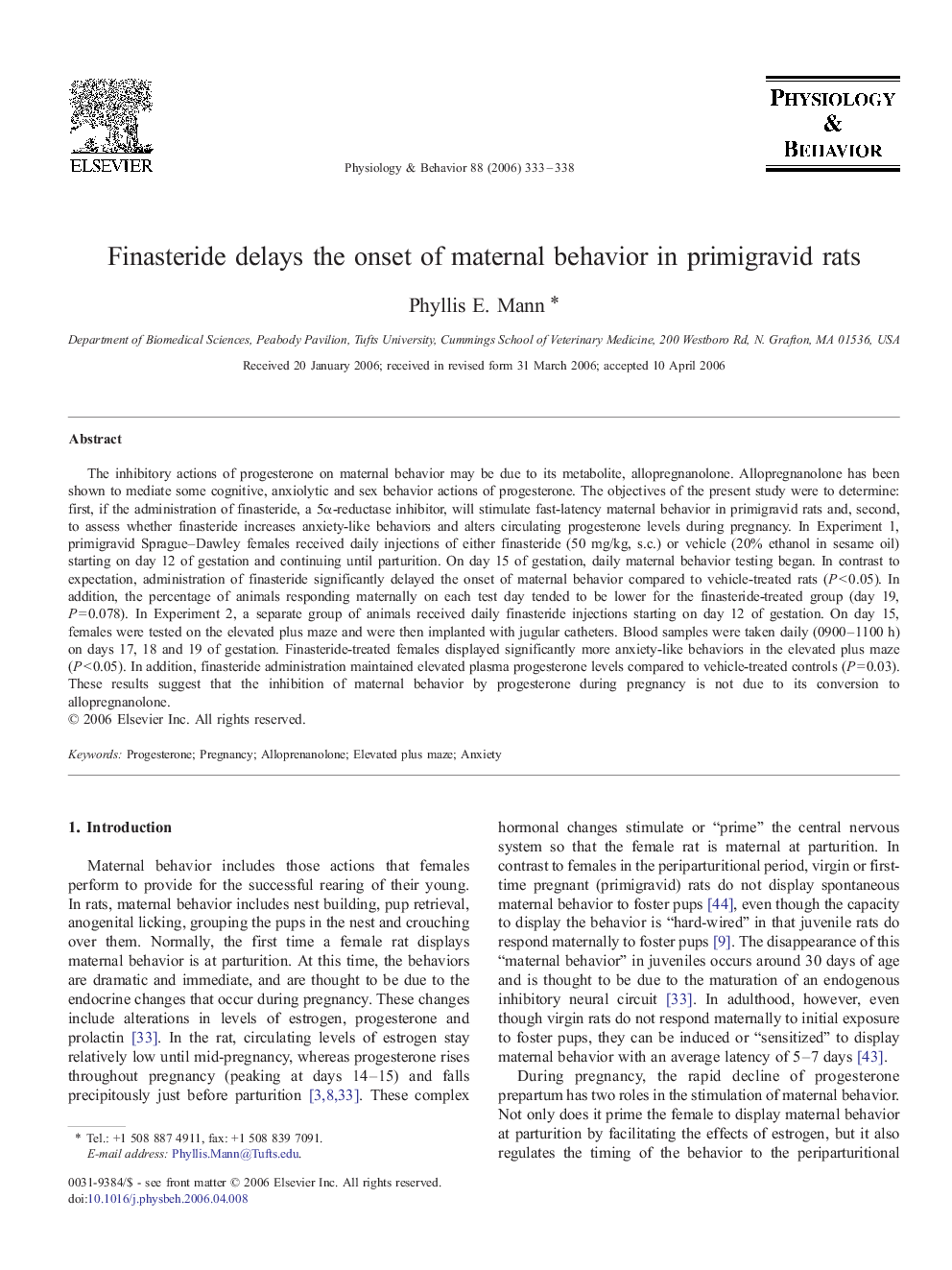| Article ID | Journal | Published Year | Pages | File Type |
|---|---|---|---|---|
| 2846229 | Physiology & Behavior | 2006 | 6 Pages |
The inhibitory actions of progesterone on maternal behavior may be due to its metabolite, allopregnanolone. Allopregnanolone has been shown to mediate some cognitive, anxiolytic and sex behavior actions of progesterone. The objectives of the present study were to determine: first, if the administration of finasteride, a 5α-reductase inhibitor, will stimulate fast-latency maternal behavior in primigravid rats and, second, to assess whether finasteride increases anxiety-like behaviors and alters circulating progesterone levels during pregnancy. In Experiment 1, primigravid Sprague–Dawley females received daily injections of either finasteride (50 mg/kg, s.c.) or vehicle (20% ethanol in sesame oil) starting on day 12 of gestation and continuing until parturition. On day 15 of gestation, daily maternal behavior testing began. In contrast to expectation, administration of finasteride significantly delayed the onset of maternal behavior compared to vehicle-treated rats (P < 0.05). In addition, the percentage of animals responding maternally on each test day tended to be lower for the finasteride-treated group (day 19, P = 0.078). In Experiment 2, a separate group of animals received daily finasteride injections starting on day 12 of gestation. On day 15, females were tested on the elevated plus maze and were then implanted with jugular catheters. Blood samples were taken daily (0900–1100 h) on days 17, 18 and 19 of gestation. Finasteride-treated females displayed significantly more anxiety-like behaviors in the elevated plus maze (P < 0.05). In addition, finasteride administration maintained elevated plasma progesterone levels compared to vehicle-treated controls (P = 0.03). These results suggest that the inhibition of maternal behavior by progesterone during pregnancy is not due to its conversion to allopregnanolone.
